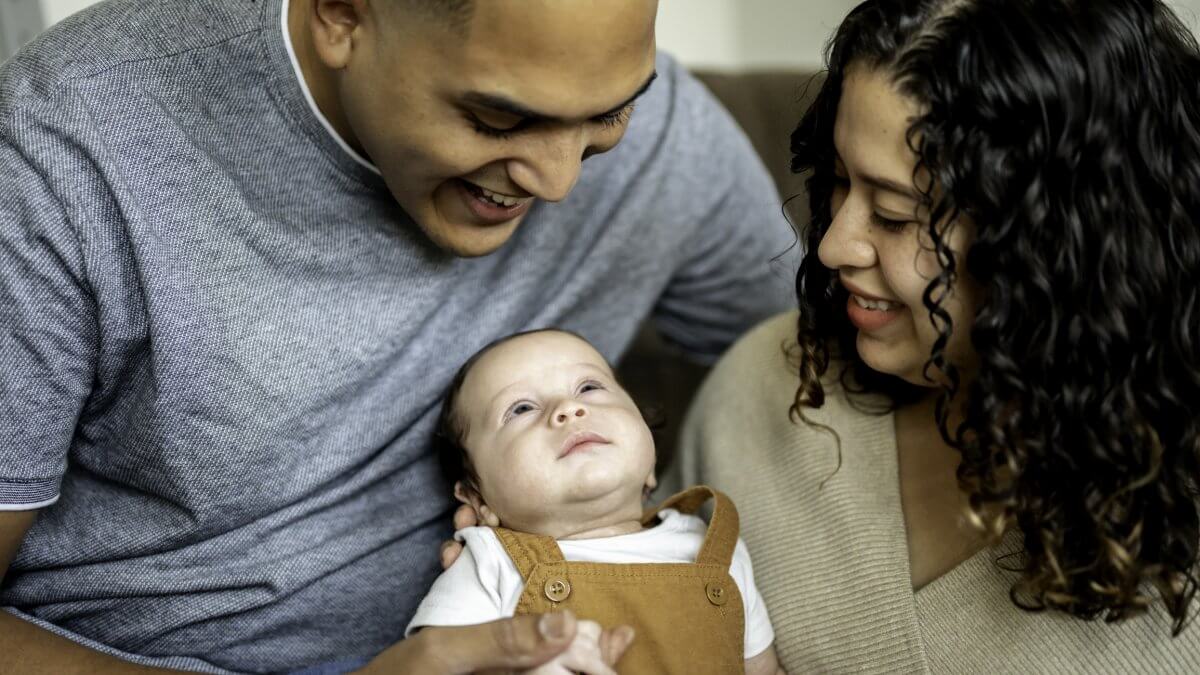The number of egg retrievals is determined by factors like age, ovarian reserve and overall health.
On average, multiple retrievals are common, but it’s important to weigh the potential benefits and risks with your fertility specialist.
Whether you’ve experienced multiple unsuccessful egg retrievals or are just starting your fertility journey, we can help you assess alternatives like donor eggs and when it might be time to find a surrogate. Contact us today.
In this article, we’ll break down everything you need to know about egg retrieval cycles, including safety considerations, the number of attempts you can try and when to consider alternative paths like surrogacy.
For more guidance and support throughout your journey, follow us on Instagram @american_surrogacy.
How many Times can you Do Egg Retrieval?
There is no set limit on the number of egg retrievals, however, the ASRM states that 2 to 6 IVF cycles are recommended for women under 35.
Due to IVF success rates decreasing with age, if you are 35+ you may want to consider other options after 2-4 failed cycles.
Curious about how your age may impact your egg retrieval outcomes? Read our article about the average number of egg retrieved.
How many Times is Safe to do Egg Retrieval?
Egg retrieval is typically a safe process and any limitations are typically based on the IVF cycle as a whole, not just the egg retrieval. It is standard to wait one full menstrual cycle between IVF cycles.
It is generally not recommended to undergo egg retrieval two months in a row without a menstrual cycle in between.
The safety of multiple egg retrievals depends on several factors, including your overall health, ovarian reserve and how your body responds to the stimulation protocol.
Can you do Back to Back Egg Retrievals?
Yes. This process is known as duo stimulation, which is when there are two ovarian stimulations during the same IVF cycle.
This procedure may be recommended if time is a factor, such as for patients with diminished ovarian reserve or that have less than antral follicles.
In a study conducted by Alberto Vaiarelli, the second egg retrieval resulted in more eggs than the first.
However, there may be some drawbacks to consider:
- OHSS: this approach may increase the risk of ovarian hyperstimulation syndrome (OHSS) and requires close monitoring by your doctor.
- Cost: Egg retrievals can range between $2,000-$$5,000 per retrieval, not including medications. For back-to-back egg retrievals, the costs will double while also leaving less time in-between procedures to save up additional funds for the second retrieval.
What Are the Risks of Multiple Egg Retrievals?
While egg retrieval is generally safe, undergoing multiple cycles can increase certain risks, including:
- Ovarian hyperstimulation syndrome (OHSS).
- Surgical complications.
- Emotional and financial strain.
Alternatives to Multiple Egg Retrievals
If you’ve undergone several cycles without success, it may be time to explore other family-building options, such as:
- Using Donor Eggs: Egg donation offers a higher success rate, particularly for individuals with low ovarian reserve.
- Embryo Donation: This option allows you to use donated embryos from other families who have completed their fertility journey.
- Surrogacy: If you’ve had to undergo multiple egg retrievals for IVF due to failed transfers or miscarriages, there may be uterine issues or maternal health problems making pregnancy difficult or impossible. Surrogacy can help you achieve parenthood using your own eggs and sperm or a donor’s.
Egg Donor Surrogacy after Failed Egg Retrieval
If there are no eggs retrieved during IVF for surrogacy, it can be a deeply emotional and unexpected setback.
Using donor eggs is a common solution when egg retrieval is unsuccessful.
You can find an egg donor through a fertility clinic, an egg bank or even consider a known donor such as a family member.
Donor eggs can be fertilized with your or your partner’s sperm, creating embryos for use for your surrogacy journey.
Surrogacy After Failed IVF
For a variety of reasons, IVF isn’t viable for some families or individuals. In these situations, you may want to consider an alternative family building method like surrogacy.
You’re already familiar with much of the beginning steps involved in surrogacy. If your IVF issues began with implantation, you may even have viable embryos ready for surrogacy.
Here are a few things you should know about switching from IVF to surrogacy:
- Short Wait Times: We know that the waiting involved in fertility treatments like IVF and egg retrieval is one of the most frustrating parts of the process. Luckily, with a surrogacy agency like us, your wait is almost over. We estimate wait times between 1 - 4 months.
- Qualified Surrogates: For certain individuals with complicated fertility stories, surrogacy may be more successful than previous endeavors. All of our surrogates have been thoroughly screened and must meet requirements.
- Financial Protection: After all the work you’ve done to get here, you may rightly feel protective of your surrogacy funds. Our built in financial protection will help you ensure your funds even in the unlikely event of a surrogacy interruption.
If you’re finding yourself considering surrogacy after failed IVF, know that you’re not alone.
We specialize in helping families move forward with confidence. Get in touch with us today to discuss your options, connect with a qualified surrogate and start planning your next steps toward parenthood.
